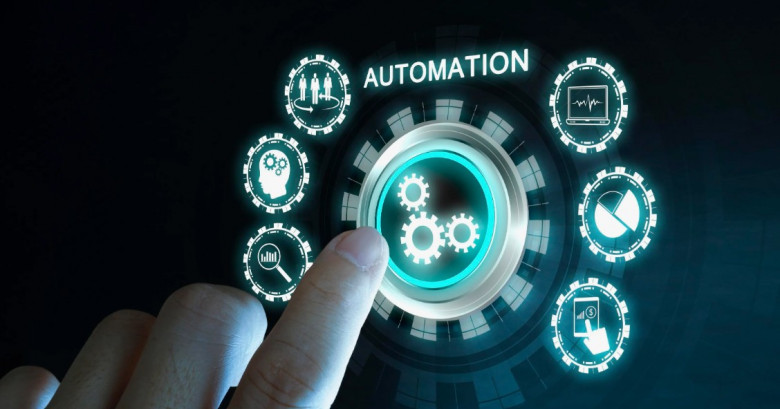views
As technology continues to advance at an unprecedented rate, industries worldwide are undergoing significant transformations. The market research sector is no exception. Artificial intelligence (AI) and automation are reshaping how data is gathered, analyzed, and interpreted. However, while AI is revolutionizing the industry, the importance of human expertise in market research remains crucial. In this article, we explore how the future of market research will blend AI-driven innovation with the irreplaceable value of human insight, and how expert network services will continue to play a key role.
1. The Rise of AI in Market Research
AI and machine learning are already making a profound impact on the market research industry. By automating data collection, processing, and analysis, AI tools can process vast amounts of data at lightning speed. These technologies are capable of detecting patterns, generating insights, and predicting future trends with high accuracy, enabling businesses to make more informed decisions.

For example, AI-powered sentiment analysis tools can sift through millions of social media posts or online reviews to understand consumer sentiments. Similarly, predictive analytics can help businesses forecast market trends or consumer behaviors, giving them an edge in an increasingly competitive market. With AI streamlining many aspects of market research, businesses are able to gain quicker and more accurate insights, which can significantly enhance their strategic planning.
2. The Limitations of AI in Market Research
Despite its numerous advantages, AI is not without limitations. While machines excel at processing large amounts of data, they struggle to interpret nuances, emotional intelligence, and context in the way humans can. Market research is not just about collecting data; it’s about understanding the story behind the numbers.
For instance, while AI can detect trends and provide statistical insights, it cannot fully comprehend the underlying motivations, feelings, or desires of consumers. Understanding why people act the way they do requires empathy, cultural awareness, and an understanding of human psychology—areas where human expertise remains indispensable. AI is excellent for identifying patterns, but it is human researchers who add depth to those findings by interpreting and contextualizing them within a broader societal and economic framework.
3. Human Expertise in the Age of AI
As AI becomes a more integral part of market research, the role of human expertise will evolve. Rather than being replaced by technology, human researchers will be empowered to use AI tools to enhance their work. Human researchers will remain essential in tasks that require critical thinking, emotional intelligence, and complex problem-solving—areas where AI is still far from mastering.

Human researchers will focus on interpreting AI-generated insights, identifying gaps in the data, and asking the right questions. They will analyze the broader context in which trends occur, taking into account social, cultural, and economic factors that AI might overlook. Moreover, human expertise will be crucial in designing research methodologies that ensure ethical considerations are taken into account and that AI models are trained in diverse and representative datasets.
4. The Evolving Role of Expert Network Services
As AI revolutionizes market research, expert network services will continue to play a vital role. Expert networks connect businesses with industry professionals, thought leaders, and specialists who can provide in-depth knowledge and insights. These services are invaluable in obtaining qualitative insights that AI and automated systems cannot provide.

While AI can offer quantitative data and trends, it cannot replace the nuanced perspectives that human experts bring. For example, if a business is entering a new market, an expert network can provide critical information on market dynamics, regulatory considerations, and customer preferences from professionals who have lived experience in that region or sector. These qualitative insights are key to making informed decisions that go beyond the surface-level analysis provided by AI.
Moreover, expert network services can provide a more personalized approach to research, helping businesses navigate complex questions and obtain insights that are not readily available through automated systems. In a world where personalization and customer-centric strategies are paramount, human expertise remains crucial for gaining a deep understanding of market conditions and consumer behaviors.
5. The Hybrid Approach: AI and Human Collaboration
The future of market research lies in the collaboration between AI and human researchers. This hybrid approach allows businesses to harness the strengths of both AI and human expertise. AI tools can handle the heavy lifting of data collection and analysis, providing fast and accurate insights, while human researchers can focus on interpreting the findings, understanding the context, and crafting actionable strategies based on the data.

This collaboration between AI and human experts will allow businesses to make faster, more informed decisions. For example, AI may help identify a potential market opportunity, but it’s the human researcher who will explore the cultural and emotional factors that may influence consumer behavior in that market. Together, AI and human expertise will provide a more comprehensive understanding of market dynamics, enabling businesses to create strategies that are both data-driven and human-centered.
6. The Future of Market Research Industry
Looking ahead, the future of market research industry is poised for continued growth and evolution. As AI technologies advance, the market research process will become more efficient, allowing businesses to gather insights faster and at a lower cost. However, the need for human expertise will remain, especially in areas that require qualitative insights, creative problem-solving, and strategic thinking.

In the coming years, we can expect to see even more advanced AI tools integrated into market research workflows. These tools will not only process larger datasets but also provide more sophisticated analysis, such as predictive analytics and real-time trend forecasting. However, these tools will still rely on human researchers to interpret the results and apply them in a meaningful way.
Furthermore, businesses will increasingly rely on expert network services to gain deeper insights into specific industries, markets, and consumer behaviors. Expert networks will evolve alongside AI technologies, offering a more integrated and seamless approach to gathering qualitative insights. As a result, businesses will be able to make better decisions, faster, with the help of both AI-powered tools and expert knowledge.
7. Conclusion
The future of market research is bright, driven by the powerful combination of AI and human expertise. While AI will continue to transform the industry by automating data collection and analysis, human researchers will remain essential in interpreting the data, understanding the context, and providing the qualitative insights that AI cannot deliver.
Expert network services will play an integral role in this evolution, connecting businesses with professionals who can provide in-depth, specialized knowledge. Together, AI, human expertise, and expert network services will create a dynamic and efficient market research ecosystem, allowing businesses to make smarter, more informed decisions in an increasingly complex and fast-paced world.













Comments
0 comment